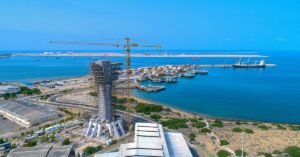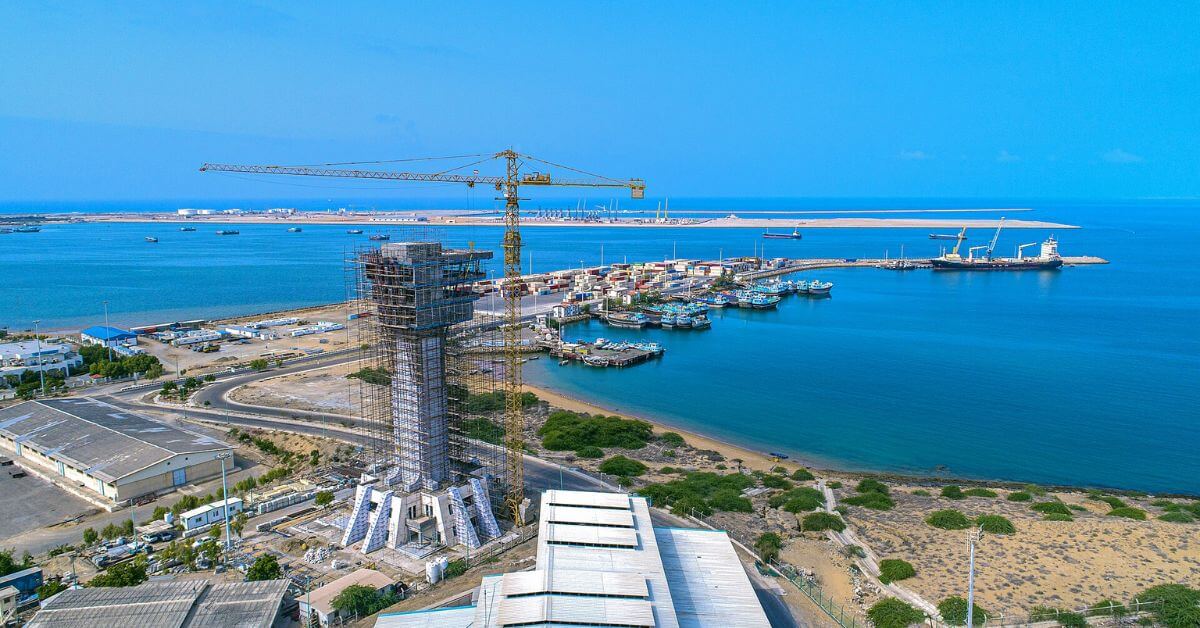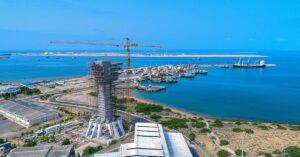
Mega Cruise Ship Aroya Transits Suez Canal With 2,300 Tourists On Board
September 19, 2025
Wreck Of WWI-Era Steam Trawler Missing Since 1929 Found In Georges Bank
September 19, 2025

The United States has announced that it will end the special permission it had given India and other countries to work at Iran’s strategic Chabahar Port. This decision, which will take effect from September 29, 2025, could affect India’s $120 million investment in the port and its plans to use it as a trade route to Afghanistan and Central Asia.
The special permission was first issued in 2018 under the Iran Freedom and Counter-Proliferation Act (IFCA). It allowed India to continue developing the port without facing U.S. penalties. Now, the U.S. says anyone operating the Chabahar Port or carrying out related activities may face sanctions once the decision comes into effect.
Secretary of State Marco Rubio announced the decision on September 18, 2025, saying it is part of Washington’s “maximum pressure” campaign against Iran. The US also recently targeted several Iranian entities involved in oil trade.
Chabahar is strategically important for India. The port provides a direct route to Afghanistan and Central Asia without passing through Pakistan. India had first proposed developing Chabahar in 2003 and sees it as a key link to the International North-South Transport Corridor (INSTC) connecting India to Russia and Europe. The port has also been used to send wheat and other vital supplies to Afghanistan.
India signed a 10-year agreement with Iran’s Port and Maritime Organisation on May 13, 2024, to operate the Shahid Beheshti terminal at Chabahar. Indian Ports Global Limited (IPGL) has committed about $120 million to the project and plans to raise an additional $250 million in credit for port infrastructure.
The Indian government has spent around ₹200 crore of a total allocation of ₹400 crore on the project since 2016. The port saw a 43% rise in vessel traffic and a 34% increase in container traffic in 2023-24.
The US had previously allowed India to keep the Chabahar project outside the sanctions imposed during President Trump’s first term in 2018, due to its importance for Afghanistan.
India must now choose between continuing work at Chabahar and risking U.S. sanctions or scaling back and relations with Iran and slowing regional connectivity plans. Chabahar also holds strategic value since it is only 140 km from Pakistan’s China-run Gwadar port.
Earlier this year, President Trump had revealed plans to end the special permission and signed an executive order instructing Secretary Rubio to remove all such exemptions. The US says the move is meant to cut off financial networks that support Iran’s government and military.
India’s National Security Adviser Ajit Doval has discussed expanding cooperation with Iran on Chabahar, including economic ties, security, and defense relations. According to Iranian officials, Doval and Iranian SNSC Secretary Ali Larijani agreed to meet in Delhi soon to advance the port project.
This is the fourth round of US sanctions directly affecting India. Previous measures forced India to stop importing oil from Iran and Venezuela, while India continues to resist reducing oil imports from Russia despite US pressure.
References: TOI, The Hindu
Source: Maritime Shipping News


